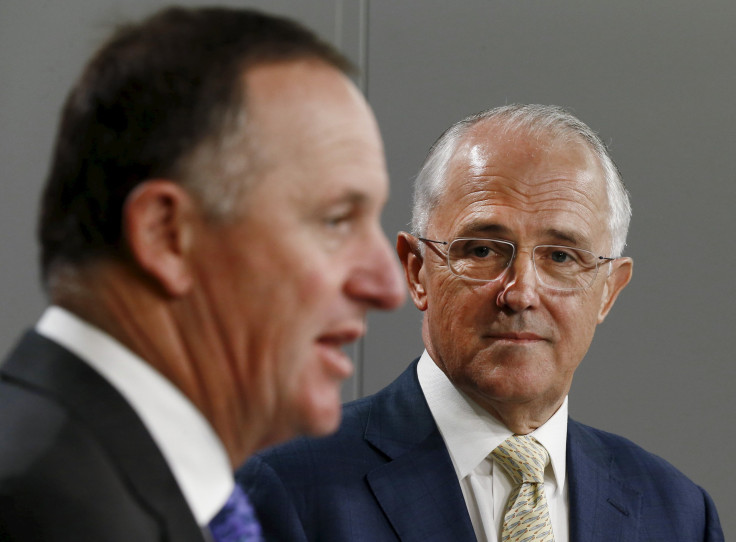Islamic State exploiting Europe's porous borders and intelligence failures: Turnbull

Violent Islamist extremism appears to have reached a crisis point in Europe with a “perfect storm” of circumstances, Malcolm Turnbull has said.
These were failed or neglected integration, foreign fighters returning from Iraq and Syria, porous borders, and intelligence and security bodies struggling to keep pace with the scope and breadth of the threat.
This combination had been described as creating a favourable ecosystem for an Islamist milieu, he said.
“For all intents and purposes there are no internal borders in Europe … and their external borders are difficult to manage,” Turnbull told the Lowy Institute on Wednesday night. Recent intelligence indicated that Islamic State “is using the refugee crisis to send its operatives into Europe”.
Turnbull contrasted Australia, which was “better placed” than many European countries to deal with the threat “because of the strength of our intelligence and security agencies, our secure borders and our successful multicultural society, one that manages to be both secure and free”.
Australia’s national security laws were regarded by its allies as among the world’s best, he said.
“The advantage of our island geography, our effective border protection systems and counter-terrorism agencies mean we have confidence that we know who is arriving.
“Strong borders, vigilant security agencies governed by the rule of law, and a steadfast commitment to the shared values of freedom and mutual respect – these are the ingredients of multicultural success, which is what we have achieved in Australia.”
Earlier, Turnbull said that while it was impossible to guarantee absolutely against a terrorist incident here, “I can assure Australians that our security system, our border protection, our domestic security arrangements, are much stronger than they are in Europe where regrettably they allowed security to slip”.
He told the Lowy Institute Australia was united with Belgium in the battle against terror. “Just as our forebears were 100 years ago on the fields of Flanders in the first world war, we are in the same struggle and we stand with you shoulder to shoulder.”
The scourge of terrorism was a global one, he said. In this fight, Australia was fully committed to playing a leading role in finding political and military solutions in the Middle East, working with our regional counterparts, particularly Indonesia and other ASEAN partners, and continuing to remain vigilant at home.
The terrorist attacks in Europe underscored “the importance of our military contribution against ISIL in Syria and Iraq, in which we have been the second largest contributor to the coalition effort.
“ISIL’s ability to inspire let alone direct terrorism around the world will be largely eliminated if its so-called caliphate is decisively defeated in the field. Its defeat requires military force and a political settlement. We are working with our allies to deliver both.”
Turnbull said that we must “take care not to view our strategic circumstances solely through the prism of counter terrorism.
“Terrorism is an example of the propaganda of the deed – it is designed to frighten and intimidate. It is designed to deter us from our normal way of life.
“That is why [Indonesian] President Joko Widodo was determined to ensure that Jakarta was back to normal within four hours of the terrorist bombing in that city in February, and why Belgium Prime Minister Charles Michel is determined to return Brussels back to business as soon as possible.”
Michelle Grattan, Professorial Fellow, University of Canberra
This article was originally published on The Conversation. Read the original article.





















